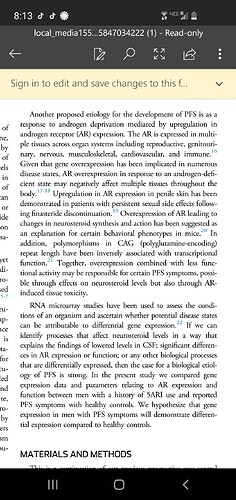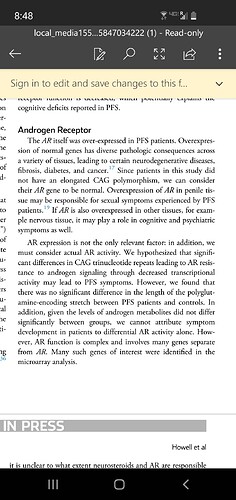Yeah, you’re correct. There is a lot of studies done which shows just that.
However after X amount of hours these genes mostly go back to baseline.
But if you keep working out often the genes will either chronically express themself more, or have a greater respond to stimuli (eg express themself more after workout).
I would assume that it’s right, however the body doesn’t want to change at all. That is why even though working out is very healthy, it’s also very exhausting.
Basically for your gene expression to change chronically you need stress and couple it with time. How much stress and time is individual.
From the data we have on fin it’s basically putting tremendous amount on stress on the (male) body when you lower DHT. But this still doesn’t explain why some people get PFS and some won’t.
And yeah I read the Baylor study and they saw that AR was over expressed in penile tissue. Pretty much confirming the other study we had some years ago.
It’s not surprising though as any anti androgen would probably do this. What’s interesting is why it won’t down regulate when off fin, as excess androgens should down regulate the AR expression.
But since we don’t have data on either people on fin without symtoms or people who has been on fin before and quit but didn’t get PFS, it’s really hard to draw any conclusion how big of an impact the AR expression have on us.
Edit: Just posting this because they show gene expression post workout pretty good.
Most expression 4-8 h post workout, and back to baseline after 24 h.


 about how to interpret Baylor this guy lays it all out in easy to understand eloquent passages
about how to interpret Baylor this guy lays it all out in easy to understand eloquent passages 


